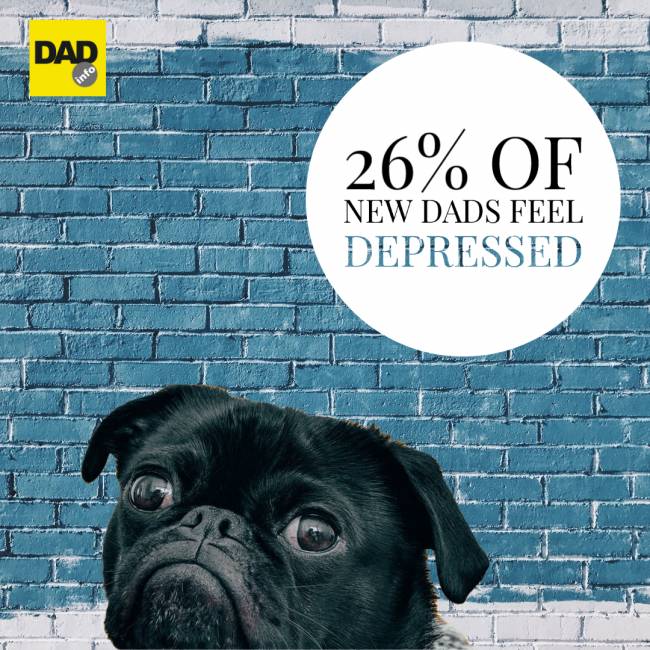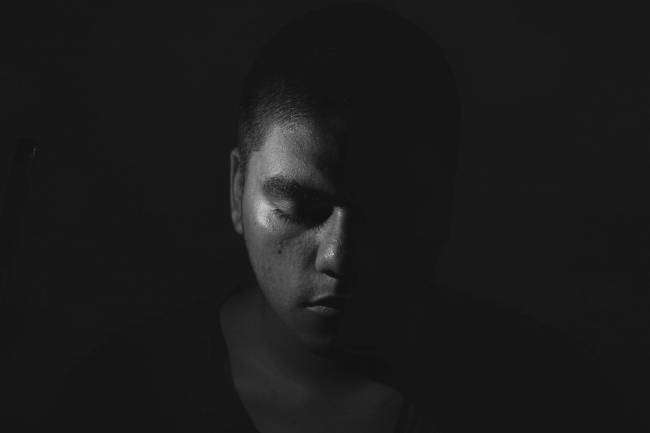After all those months of waiting to meet your new baby, emotions can run high and some fathers will become overwhelmed and develop post-natal depression.

Postnatal depression is essentially another form of clinical depression, brought on by having a new baby and Dads suffer too. In fact, a massive 10 percent of new fathers show signs of depression either during their wife’s pregnancy or up to six months after their child is born. Three to six-month after the baby’s arrival a whopping 26% of new Dads feel depressed.*
Tony’s Story
Donna began to get very close to the baby and I began to feel more and more useless – I felt like a spare part. Donna knew several other mums in the area and would like to meet up. When they came to our flat, I didn’t know what to do with myself. I began to leave, just to get out of the way. Donna and I had some terrible rows. It seemed so unfair. I also found it really hard to get close to Matthew – he would always cry for his mum and she would take him away from me. I found I couldn’t sleep and began not to enjoy anything. I was really irritable and not eating properly. In the end, my best mate said I looked really rough. It took a lot of courage, but I eventually went to see my GP.
New Dad Reality Check

Your baby will endlessly cry. You may well be up at 3am (and 5am) helping with a feed when you just want your bed. The mother and the baby, especially in the early weeks, can seem like the stars of the show and you, just the Dad can feel like a bystander looking in as the mother and infant bond.
Bonding with Baby
It can help to establish some small steps to avoid potential feelings of resentment, make time to stop and be with your baby, have lots of cuddles, someone else can make the tea! Skin-to-skin is especially good, take your shirt off, strip your baby down to their nappy (or further if you dare!). Holding your baby can help you avoid feeling isolated and give your partner some rest. Post-Natal depression can make it really tough for you to bond with your baby. Be aware of that but having depression does not make you a lesser parent, in the same way that catching a cold wouldn’t – it is an illness, not a weakness or a reflection on how much you love your baby.
What are the symptoms of Post Natal Depression?

- Fear, confusion and helplessness
- Withdrawal from work, family and social events
- Frustration
- Marital conflict
- Insomnia
- Negative parenting
- Physical changes such as headaches, changes in appetite.
What Can You Do?
- Don’t try to ignore these feelings and soldier on.
- And don’t resort to drink, drugs or burying yourself in work in an attempt to cope – this is a short-term fix and will do more harm than good in the long run.
- Remember that your health is important to your partner, to your baby, and for her development.
- Seek help from the start: don’t wait to be asked by a health professional, such as your family health visitor or GP, about how well you’re feeling or coping.
- You’re more likely to recover quickly if you can acknowledge the problem and actively seek a solution.
- Consider asking for support or practical help from family or friends, if you want to chat with other Dads anonymously use Dad.info’s forum or consult your GP.
Further Support
Join our community of Dads in Dad.info’s Forum – experienced parent support teams are waiting to answer your queries.
Pre and Postnatal Depression Advice and Support (PANDAS) have lots of help and advice – FREE helpline 0808 1961 776
The Association for Post Natal Illness
Contact your local GP or health visitor.
About the Author
Katie Davis-Clifford is Parent Support Co-ordinator for Fegans Children’s Counselling Charity who publish Dad.info. For more advice and ideas why not sign up to our free course packed with parenting ideas – sign up here
* Stats taken from the Journal of the American Medical Association






